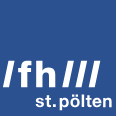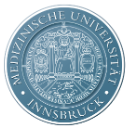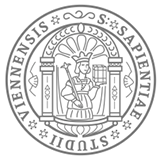Detailed introduction of Graz University of Technology:
Introduction
Graz University of Technology is located in Graz, the capital of Styria, the second largest city in Austria. It is one of the oldest public technical universities in Austria. It is adjacent to the Vienna University of Technology and is one of the only two technical universities in Austria.
Overview
Student size: There are more than 13,000 students, including 1,798 international students.
Faculty: There are 1,511 faculty members, of which 31% are international faculty members.
History
Establishment time: The school was built in 1811.
Important development stage: In its development history, it has cultivated many outstanding talents. The famous physicist Nikola Tesla once studied here. The school is also constantly developing and improving its discipline system and teaching and research facilities, and gradually becoming one of the important industrial universities in Austria.
School strength
Teaching resources: The school has 7 colleges and 104 Research departments and institutes are equipped with advanced teaching equipment and a complete network transmission system. The library resources are among the best in Austria.
Academic research: As an industrial university with significant influence, it has carried out in-depth scientific research in the fields of engineering technology, natural sciences, etc., and has achieved a series of research results with international influence, which has made important contributions to the development of related industries, and has maintained close cooperation with many internationally renowned companies and research institutions.
Nature of the institution
Graz University of Technology is a public university.
Educational philosophy
Focus on the combination of theory and practice, emphasize the cultivation of students' innovative ability and ability to solve practical problems, and encourage students to actively participate in scientific research projects and practical activities to meet the society's demand for professional talents in the fields of engineering technology and natural sciences.
Key laboratories and disciplines
Key disciplines: Mechanical engineering, electrical and information engineering, computer science, chemical engineering, civil engineering, architecture and other disciplines are strong. In the QS World University Rankings by Subject, its mechanical engineering major ranks among the top 200 in the world. For example, the School of Mechanical Manufacturing and Economics has made remarkable achievements in teaching and scientific research in the field of mechanical engineering, and the School of Electrical and Information Engineering has a deep academic accumulation in electrical, electronic and information technology.
Key laboratories: The school has a number of advanced scientific research laboratories, such as the Quantum Technology Laboratory of the School of Engineering Physics and the Artificial Intelligence Laboratory of the School of Information, which provide important platform support for cutting-edge research in related disciplines.
Faculty
The school has seven colleges, including the School of Architecture, the School of Architectural Engineering, the School of Mechanical Manufacturing and Economics, the School of Electrical and Information Engineering, the School of Engineering Mathematics and Engineering Physics, the School of Engineering Chemistry - Process Science and Biotechnology, and the School of Information.
Ranking
QS World University Rankings: Ranked 413th in 2025.
QS Subject Rankings: In 2017, its mechanical engineering major ranked in the top 200 of the QS World University Subject Rankings.
Expenses
Tuition fees vary according to different majors and degrees, generally about several hundred euros per semester, and international students may also need to pay certain registration fees and other fees. The school offers a variety of scholarships to help outstanding students complete their studies. For example, students can apply for relevant scholarships in the projects that the school cooperates with Tongji University.
Campus
Location and environment: The main campus is located in the center of Graz, and some campuses are in the southeast of the city. The city is the gateway from Central Europe to Southeast Europe and a hub for the intersection of European cultures. It has a profound cultural heritage and a beautiful natural environment, providing students with a good learning and living atmosphere.
Architectural style: The campus buildings combine historical and modern elements. There are both ancient teaching buildings that show the traditional Austrian architectural style, and modern scientific research buildings and teaching facilities that reflect a sense of technology and modernity.
-

Graz University of Technology
-

University of Linz
-

Medical University of Graz
-

University of Leoben
-

Medical University of Vienna
-

St. Pölten University of Applied Sciences
-

Innsbruck Medical University
-

University of Vienna
-

Vienna University of Technology
-

University of Natural Resources and Applied Life Sciences, Vienna
-

Mesoamerican University
-

Istmo University
-

Mariano Galvez University of Guatemala
-

Regional University of Guatemala
-

Galileo University
-

Francisco Marroquín University
-

Rafael Landívar University
-

University of the Valley of Guatemala
-

University of San Carlos of Guatemala
-

Technological Institute of Tlaxcala Plateau
-

Golfo University
-

Technological University of South Sonora
-

Technological University of Huejotzingo
-

Tizimín Institute of Technology
-

Chilpancingo Institute of Technology
